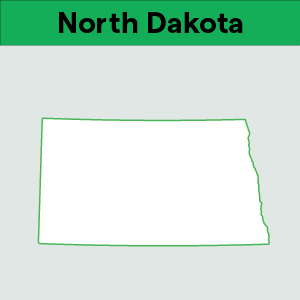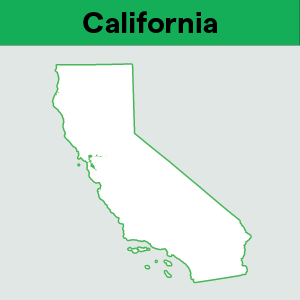Rhode Island’s marketplace facilitator law, explained
by September 6, 2024
The state of Rhode Island requires marketplaces to collect sales tax on behalf of sellers on online marketplaces like Amazon and Walmart.
This means that if you sell on a platform like Amazon, then Amazon will collect sales tax from your Rhode Island buyers on your behalf, and remit it to the state.
But as usual, there are always a few wrinkles here when it comes to e-commerce sales tax.
This post will explain what online sellers need to know about the Rhode Island marketplace facilitator law, and answer your frequently asked questions.
Overview of the Rhode Island marketplace facilitator law
Rhode Island’s marketplace facilitator law states that marketplace facilitators are required to remit sales tax on all sales into the state if the economic thresholds of $100,000 or more in sales, or 200 or more separate transactions are met.
Quick facts about the Rhode Island marketplace facilitator law
-
- Effective date: July 1, 2019
- Threshold: Rhode Island’s marketplace facilitator law states that marketplace facilitators are required to remit sales tax on all sales into the state if the economic thresholds of $100,000 or more in sales, or 200 or more separate transactions are met.
- State law information: Read the full text of the Rhode Island Marketplace Facilitator Law
- Marketplaces that have adopted this law:
Frequently asked questions about marketplace facilitator laws
What exactly is a marketplace facilitator in Rhode Island?
Rhode Island law defines marketplace facilitators as a listing or otherwise making available listing or otherwise making available for sale the tangible personal property of the marketplace seller through a marketplace owned or operated by the marketplace facilitator.
Online sales platforms like Amazon and Walmart are considered marketplace facilitators under Rhode Island law.
Does this mean I can stop collecting Rhode Island sales tax?
It depends. Every business’s sales tax situation is unique to that business.
Let’s look at a couple of common scenarios for businesses who have sales tax nexus in Rhode Island.
Example #1: You only make sales on online marketplaces.
In this example, you only sell on Amazon and eBay. Because Amazon and eBay are both now collecting sales tax from buyers on your behalf, you are not required to collect sales tax from your buyers. (However, you may still be required to file periodic sales tax returns. See “Does this mean I can cancel my Rhode Island sales tax permit?” below.)
Example #2: You sell on online marketplaces and your own online store and/or brick and mortar store.
In this case, you’d still be required to collect sales tax from buyers who purchase from you through your own online store (for example, via your BigCommerce or Shopify store). And you would still be required to collect sales tax from your brick and mortar customers.
Marketplace facilitator laws only cover marketplaces. The state still requires that merchants collect sales tax from buyers via sales channels where the marketplace facilitator laws do not apply.
Does this mean I can cancel my Rhode Island sales tax permit?
No, marketplace-only sellers should not cancel their sales tax permits.
Do I still need to file a Rhode Island sales tax return?
If you are registered to collect sales tax in Rhode Island (i.e. you have an active Rhode Island sales tax permit) then the state still requires that you file sales tax returns.
If you only make sales via marketplaces, and all of your marketplaces collect sales tax from buyers on your behalf, then you may only be required to file a “zero return.” (This is a return showing that you do not have any sales tax to remit to the state.)
If you no longer have any sales tax to remit to the state of Rhode Island, we recommend checking directly with the state to determine if you can cancel your sales tax registration.
Be cautious here. If you are registered for a sales tax permit and do not file, the state can assess penalties even though you don’t have any sales tax to remit! We have, unfortunately, talked to too many sellers who have found this out the hard way when a tax penalty bill arrives.
What do I do with any Rhode Island sales tax I have already collected?
If you have already collected Rhode Island sales tax from buyers, it is vital that you remit that amount to the state. The only way to get in serious criminal trouble in sales tax is to collect sales tax from buyers on the state’s behalf but keep it in your own pocket.
Does TaxJar handle this for me?
Yes.
TaxJar AutoFile handles Rhode Island sales tax automatically
TaxJar AutoFile automatically compiles your sales tax data the way the state of Rhode Island wants it filed. For example, many states, Rhode Island included, want sellers to break down their sales tax collected interstate (sales originating in Rhode Island sent to another state) and intrastate (sales made from Rhode Island to Rhode Island.)
If a marketplace has collected sales tax on your behalf, TaxJar reports that directly to the state so that the state is aware you have met your sales tax obligations.
If you currently AutoFile your Rhode Island sales tax returns, you don’t need to do a thing. It’s handled!
TaxJar reports give you all the info you need to file manually
If you prefer to file manually, your TaxJar Reports also reflect what the Rhode Island Division of Taxation wants to see on your tax return.
Also don’t worry that you will double pay. TaxJar accounts for sales tax collected on your behalf, and only shows you the amount you owe to the state out of your pocket.
Further reading on Rhode Island sales tax and marketplace facilitator laws:
- TaxJar’s Marketplace Facilitator FAQ
- State by State: Marketplace Facilitator Laws Explained
- Rhode Island Sales Tax Guide for Businesses








